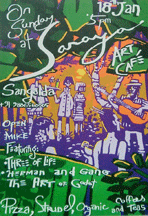Sugar is a class of edible crystalline substances, mainly sucrose, lactose, and fructose. Human taste buds interpret its flavor as sweet. Sugar as a basic food carbohydrate primarily comes from sugar cane and from sugar beet, but also appears in fruit, honey, sorghum, sugar maple (in maple syrup. Excessive consumption of sugar has been associated with increased incidences of type 2 diabetes, obesity and tooth decay.
In non-scientific use, the term sugar refers to crystalline sugars.
Humans most commonly use sucrose as their sugar of choice for altering the flavor and properties Commercially produced table sugar comes either from sugar cane or from sugar beet.
Sugar may dissolve in water to form a syrup. A great many foods exist which principally contain dissolved sugar. Generically known as "syrups", they may also have other more specific names such as "honey", molasses or treacle.
Culinary/nutritional
In culinary terms, the foodstuff known as sugar delivers a primary taste sensation of sweetness. Apart from the many forms of sugar and of sugar-containing foodstuffs, alternative non-sugar-based sweeteners exist, and these particularly attract interest from people who have problems with their blood sugar level (such as diabetics) and people who wish to limit their calorie-intake while still enjoying sweet foods. Both natural and synthetic substitutes exist with no significant carbohydrate (and thus low-calorie) content: for instance stevia (a herb), and saccharin (produced from naturally occurring but not necessarily naturally edible substances by inducing appropriate chemical reactions).
Refined sugar was originally a luxury, but sugar eventually became sufficiently cheap and common to influence standard cuisine.
| < Prev | Next > |
|---|
















